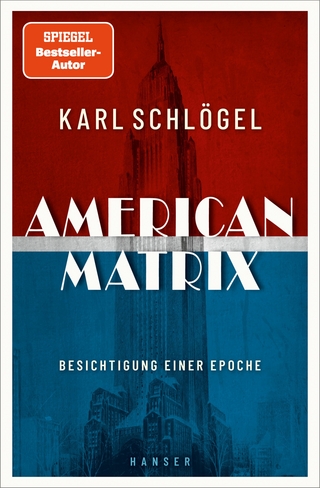
Simone Weil's Apologetic Use of Literature
Her Christological Interpretation of Ancient Greek Texts
Seiten
2007
Oxford University Press (Verlag)
978-0-19-921245-3 (ISBN)
Oxford University Press (Verlag)
978-0-19-921245-3 (ISBN)
Looks at Simone Weil's Christological interpretations of the Sophoclean "Antigone" and "Electra", the "Iliad" and Aeschylus' "Prometheus Bound". This book traces her apologetic intentions and explains the manner in which she recasts familiar Christian concepts (thereby letting them come alive - something every good apologist should be able to do).
Marie Cabaud Meaney looks at Simone Weil's Christological interpretations of the Sophoclean Antigone and Electra, the Iliad and Aeschylus' Prometheus Bound. Apart from her article on the Iliad, Weil's interpretations are not widely known, probably because they are fragmentary and boldly twist the classics, sometimes even contradicting their literal meaning. Meaney argues that Weil had an apologetic purpose in mind: to the spiritual ills of ideology and fanaticism in World War II she wanted to give a spiritual answer, namely the re-Christianization of Europe to which she (though not baptized herself) wished to contribute in some way. To the intellectual agnostics of her day she intended to show through her interpretations that the texts they cherished so much could only be fully understood in light of Christ; to the Catholics she sought to reveal that Catholicism was much more universal than generally believed, since Greek culture already embodied the Christian spirit - perhaps to a greater extent than the Catholic Church ever had. Despite or perhaps because of this apologetic slant, Weil's readings uncover new layers of these familiar texts: Antigone is a Christological figure, combating Creon's ideology of the State by a folly of love that leads her to a Passion in which she experiences an abandonment similar to that of Christ on the Cross. The Iliad depicts a world as yet unredeemed, but which traces objectively the reign of force to which both oppressors and oppressed are subject. Prometheus Bound becomes the vehicle of her theodicy, in which she shows that suffering only makes sense in light of the Cross. But the pinnacle of the spiritual life is described in Electra which, she believes, reflects a mystical experience - something Weil herself had experienced unexpectedly when 'Christ himself came down and took her' in November 1938. In order to do justice to Weil's readings, Meaney not only traces her apologetic intentions and explains the manner in which she recasts familiar Christian concepts (thereby letting them come alive - something every good apologist should be able to do), but also situates them among standard approaches used by classicists today, thereby showing that her interpretations truly contribute something new.
Marie Cabaud Meaney looks at Simone Weil's Christological interpretations of the Sophoclean Antigone and Electra, the Iliad and Aeschylus' Prometheus Bound. Apart from her article on the Iliad, Weil's interpretations are not widely known, probably because they are fragmentary and boldly twist the classics, sometimes even contradicting their literal meaning. Meaney argues that Weil had an apologetic purpose in mind: to the spiritual ills of ideology and fanaticism in World War II she wanted to give a spiritual answer, namely the re-Christianization of Europe to which she (though not baptized herself) wished to contribute in some way. To the intellectual agnostics of her day she intended to show through her interpretations that the texts they cherished so much could only be fully understood in light of Christ; to the Catholics she sought to reveal that Catholicism was much more universal than generally believed, since Greek culture already embodied the Christian spirit - perhaps to a greater extent than the Catholic Church ever had. Despite or perhaps because of this apologetic slant, Weil's readings uncover new layers of these familiar texts: Antigone is a Christological figure, combating Creon's ideology of the State by a folly of love that leads her to a Passion in which she experiences an abandonment similar to that of Christ on the Cross. The Iliad depicts a world as yet unredeemed, but which traces objectively the reign of force to which both oppressors and oppressed are subject. Prometheus Bound becomes the vehicle of her theodicy, in which she shows that suffering only makes sense in light of the Cross. But the pinnacle of the spiritual life is described in Electra which, she believes, reflects a mystical experience - something Weil herself had experienced unexpectedly when 'Christ himself came down and took her' in November 1938. In order to do justice to Weil's readings, Meaney not only traces her apologetic intentions and explains the manner in which she recasts familiar Christian concepts (thereby letting them come alive - something every good apologist should be able to do), but also situates them among standard approaches used by classicists today, thereby showing that her interpretations truly contribute something new.
Marie Cabaud Meaney is an Arthur J. Ennis Teaching Fellow at Villanova University, Philadelphia
1. Simone Weil and the Classics ; 2. Simone Weil and Apologetics ; 3. Simone Weil as Apologist ; 4. Antigone and the Moral Law: Glimpses of the Supernatural ; 5. Tableau de l'absence de Dieu - a Modern Interpretation of the Iliad ; 6. Prometheus Bound: An Apologetics of the Cross ; 7. Electra - Waiting on God ; 8. Conclusion: Simone Weil - An Apologist of the Supernatural
| Erscheint lt. Verlag | 6.12.2007 |
|---|---|
| Reihe/Serie | Oxford Modern Languages and Literature Monographs |
| Verlagsort | Oxford |
| Sprache | englisch |
| Maße | 144 x 222 mm |
| Gewicht | 461 g |
| Themenwelt | Literatur ► Essays / Feuilleton |
| Geisteswissenschaften ► Geschichte ► Regional- / Ländergeschichte | |
| Geisteswissenschaften ► Sprach- / Literaturwissenschaft ► Anglistik / Amerikanistik | |
| Geisteswissenschaften ► Sprach- / Literaturwissenschaft ► Literaturwissenschaft | |
| ISBN-10 | 0-19-921245-7 / 0199212457 |
| ISBN-13 | 978-0-19-921245-3 / 9780199212453 |
| Zustand | Neuware |
| Haben Sie eine Frage zum Produkt? |
Mehr entdecken
aus dem Bereich
aus dem Bereich
Erinnerungen
Buch | Softcover (2024)
Pantheon (Verlag)
16,00 €


